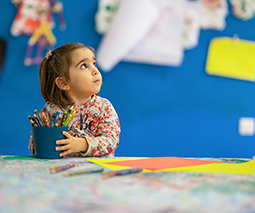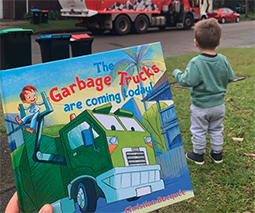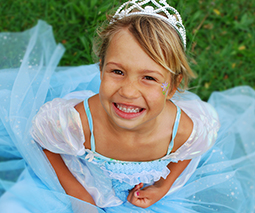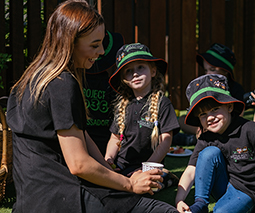Helping your shy child make friends at preschool
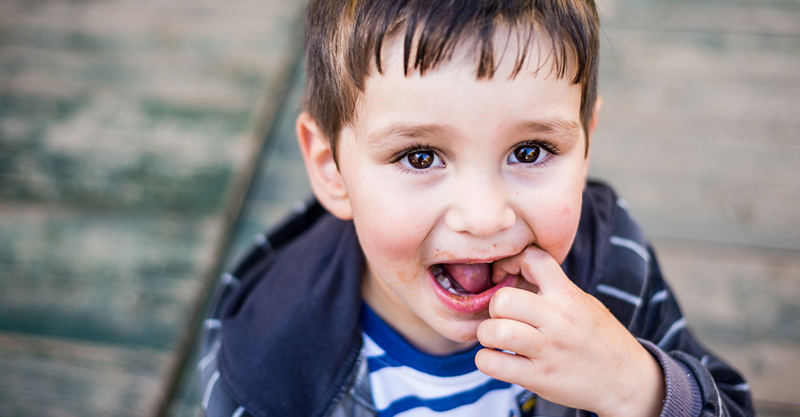
For a little person who’s best friends are typically called ‘Snuggly’ or ‘Broom Broom’, the first experience at a new daycare centre can be a mix of bewilderment, fear and uncertainty. This behaviour is often interpreted as ‘shyness’, a word that unfortunately carries somewhat negative connotations.
But understanding your child is, in fact, making a huge social leap – one that would render almost anyone unsure and shy! – will help us know how to ease their transition.
Stages of play
Youngsters go through stages of play that are, at first, individual and focused (‘solitary play’ – age 1) and then alongside other toddlers but still with separate games (‘parallel play’ – age 2). By the time they are well into toddlerhood, they’re able to engage in group play.
But making friends doesn’t come naturally to many, if not most, kids. So much of what we as adults know about friendship, and how to strike up a conversation with a stranger, comes from learned social behaviours over a lifetime. To think that our kids – whose social skills are still blooming – can make friends easily or automatically is a misconception.
Kids need tips on how to make friends
Our toddlers need a few friendly reminders before starting at a daycare for the first time, and this doesn’t change as they get older. Don’t be surprised if you need to give gentle hints before they start their first day of preschool, Kindergarten and even high school! Giving your child tips on making friends doesn’t mean that they’re ‘socially awkward’, but rather that all kids are socially awkward, to a degree. They’re all learning how to get on with others, make friends and navigate disputes.
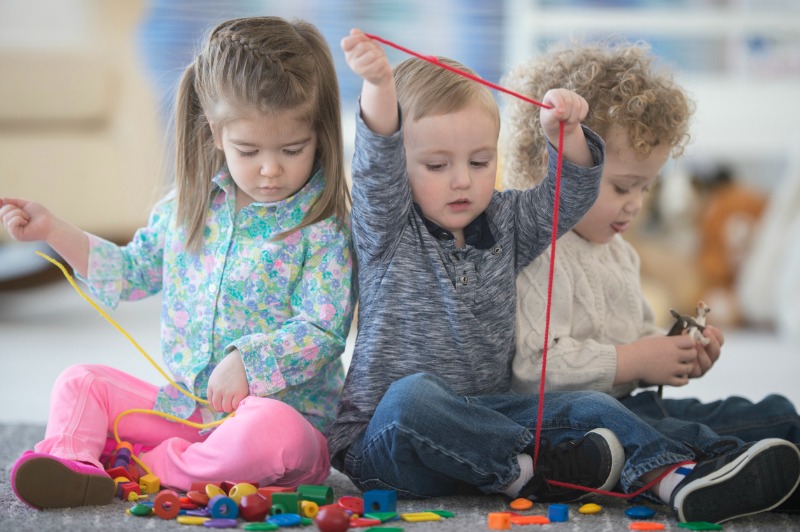
Tips to help your toddler make friends at daycare
1. Take a little while to help them settle in
Ask the daycare centre if you can take a few hours the first day to help your child ease in. If you need to take half a day off work just for the first day, this may be worth it in the long run. Make it clear to staff that you don’t intend to do this every morning, just the first day. If you’re met with resistance, you could make it clear that a few hours the first day will hopefully mean fewer (or zero!) tears at morning drop-offs thereafter. Every centre has a different policy on parental presence, but you can only try!
2. Help your child relax and meet other kids
With you there as a familiar face, your child may find it easier to relax and mix with the other kids. You can gently suggest they find activities they enjoy and meet kids they may get on with. It also helps for you to meet the other kids so when your child mentions Dylan or Holly, you know who they’re talking about.
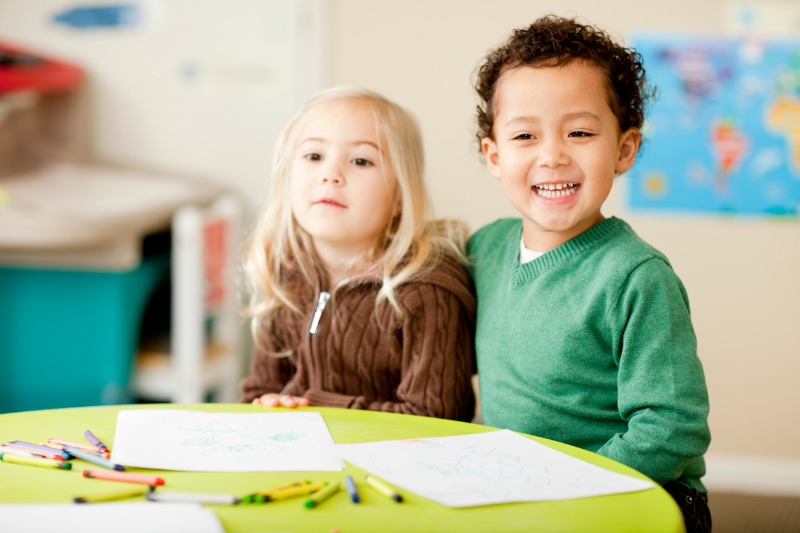
3. Keep in mind warming up may take time
Obviously, you can’t be there for hours every morning, but if you can manage it the first day, gradually fading into the background as your child becomes more confident, they may connect with a staff member who provides a similar reassurance.
Give your child a few weeks to truly warm up. Some may be running in the doors within days, others may take more time.
4. Ask the daycare centre for details on daily routines
What does this have to do with friendship? Well, knowing that there’s a story at 11am or a sleep after lunch, means you can talk your toddler through the day in the morning before you leave. Predictability is important for little ones, so knowing what is coming may help them settle more quickly. Being worked up and upset will mean other kids will give them a wide berth, so easing their little minds is an important step in helping them relax and be open to playing with other kids.
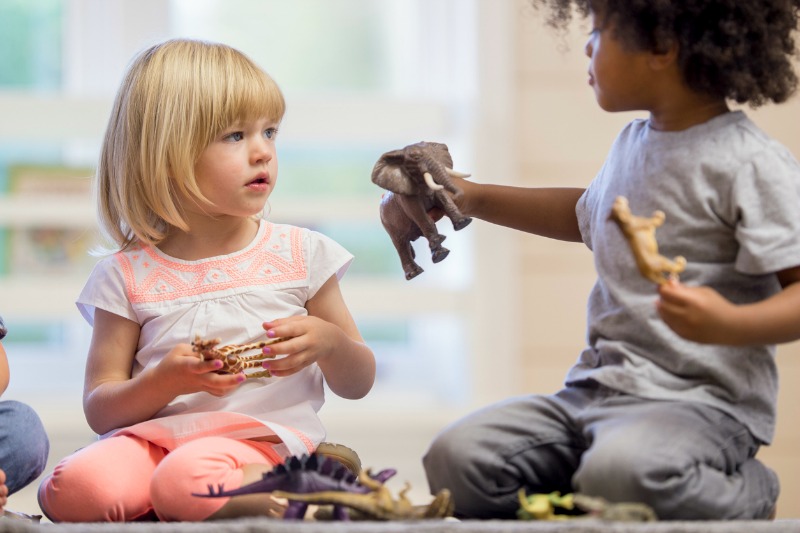
5. Suggest your child brings a special toy to share
The benefits of your child bringing a toy to show are two-fold. First, they have something familiar from home that may give them assurance and security when you leave. And second, they can show other toddlers their toy, which may help them make friends.
Keep in mind that the toy should be approved by the daycare centre, non-breakable, non-valuable and something the child would be happy to share. Bringing something which they then hold tight to their chest, and run away from other kids to protect, may prevent friendships forming.
6. When it comes to communication, your toddler will learn from you
Conversation isn’t a natural skill, and all children need to have the basics broken down for them. It might sound ridiculous, but you’ll probably need to explain that when two people are talking, first one speaks while the other listens. What’s obvious to you isn’t necessarily obvious for them.
Demonstrate it to them, and practise with them regularly. Acknowledge and affirm them when you see your child listening or waiting before they speak or to ask a question. Tell them how being listened to makes you feel, and ask them how they feel.
7. If they’re old enough, teach and practice basic manners at home BEFORE they start daycare
Basic please and thank you go a long way, and all toddlers are capable of learning, even if they don’t understand the reasons behind it initially.
Practice, practice, practice in the months before your little one starts daycare, using every mealtime and play opportunity as a chance to emphasise when we say thank you and please.
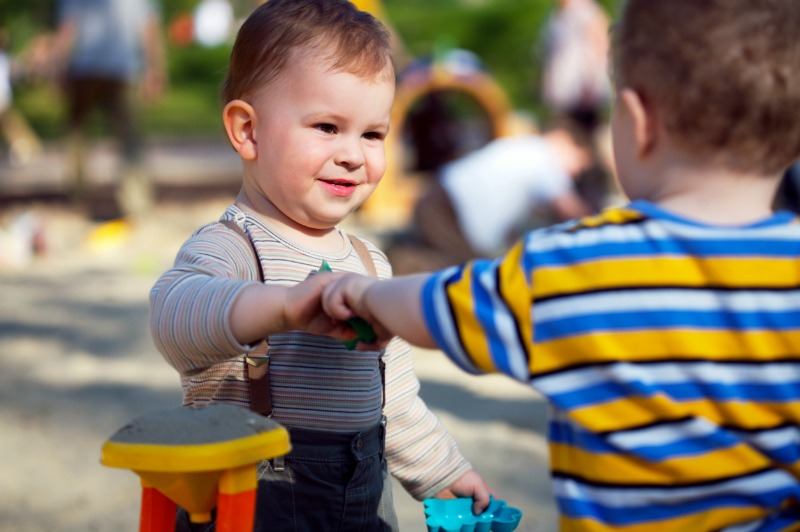
8. Teach empathy, assertiveness and negotiation outside of daycare
Daycare staff have a tough job trying to keep 40+ children safe, clean, fed and happy all day, so little disputes among toddlers are often ended quickly (removal and separation), without either child learning from the situation. It’s YOUR job as a parent to use quieter and more intimate moments on playdates or at home to teach your child how to respect and care for others.
- If you see a sibling or playmate pushing your child over, snatching a toy, or being mean, give your toddler some tips for how to respond without retaliating. Simply telling them to say “I don’t like that” and walk away is the best approach.
- The concept of negotiation is an incredibly abstract one for toddlers, whose development of self is purely self-focused at this stage. Modelling how to share to them can help over time. You may feel like a broken record, but as the message is repeated again and again, they will eventually learn to negotiate, as their sense of ‘other’ versus ‘self’ develops.
- If your child sees another child being hurt or bullied, teach them to go over and ask “are you okay” and offer a hug or a pat on the back. Little things like this will help them make friends at daycare, as other children perceive them as kind and caring.
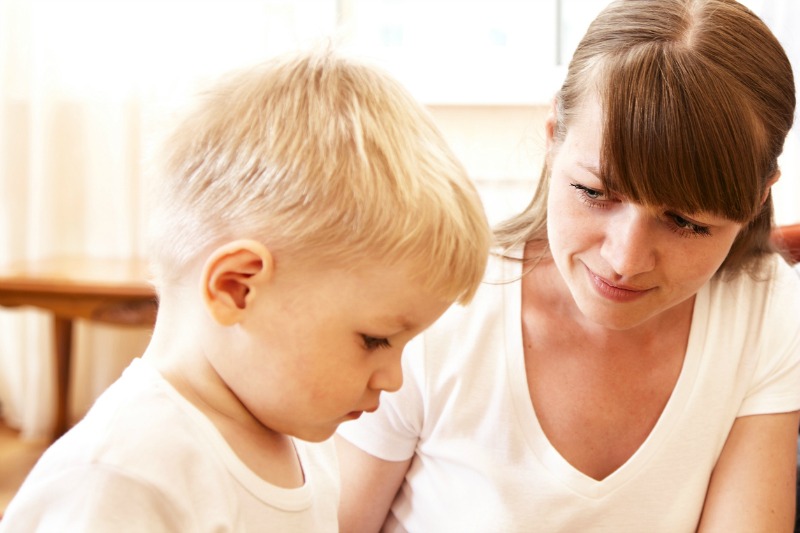
9. Talk about how to handle big emotions with your toddler and with daycare staff
Kids’ ability to self-regulate (meaning, to control the outward expression of their emotions) is still very underdeveloped in the toddler years. Helping your toddler to express hurt, anger or frustration in a healthy way is a steep learning curve, requiring a lot of practice and a certain language level they don’t yet possess.
Some things to keep in mind:
- Strategies you practice at home (for example, letting their emotions run a course by putting a pillow under their head when they lie on the floor and tantrum) may not necessarily be practical or safe at daycare, with 40 other children running around.
- If your child finds it difficult to express their big feelings in a healthy, non-violent way, talk to your daycare centre staff about how you can work together. Your toddler may need a simple ’emergency code word’ (colours work well: green for happy, blue for sad, red for angry) so they can tell staff when they’re unhappy or feeling frustrated.
- Maybe they’ll need quiet time on a beanbag with a book, a distracting rhyme or song, or a quick snack by their bag to break the cycle. You know your child best, so talking with staff to work out a plan will help them relate to your child when their emotions get out of control.
Have you got any tips for helping toddlers transition into daycare and make friends?
